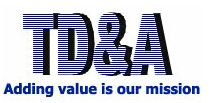
1. What is ISO/IEC 17025?
ISO/IEC 17025 is a standard jointly issued by the International Organization for Standardization (ISO) and the International Electrotechnical Commission (IEC). It applies to all testing and calibration laboratories, regardless of their size or field of operation.
This standard sets out the requirements for a quality management system and technical competence, ensuring that laboratories can produce reliable, accurate results that are internationally recognized.
2. Versions of ISO/IEC 17025
- ISO/IEC 17025:1999 – First edition
- ISO/IEC 17025:2005 – Second edition
- ISO/IEC 17025:2017 – Current edition
3. Objectives of ISO/IEC 17025
- Ensure the technical competence of testing and calibration laboratories.
- Improve the reliability and accuracy of test results.
- Enhance mutual recognition of results across countries (through mutual recognition agreements).
- Support organizations and businesses in meeting management, regulatory, and technical standards.
- Minimize risks in testing, analysis, and measurement activities.
4. Key Requirements of ISO/IEC 17025
The standard includes two main categories of requirements:
Quality Management System Requirements:
- Control of documents and records
- Internal audits and corrective actions
- Risk and opportunity management
- Continual improvement

Technical Competence Requirements:
- Qualifications, experience, and competence of personnel
- Calibration and control of measuring equipment
- Assurance of test result quality
- Valid test methods with traceable origins
- Environmental conditions and control of test samples
5. Who Should Apply ISO/IEC 17025?
ISO/IEC 17025 is widely applicable to:
- Testing laboratories in various fields such as food, environment, healthcare, materials, electronics, chemistry, etc.
- Calibration laboratories for measuring instruments, industrial machinery, medical devices, etc.
- Inspection, certification, and conformity assessment bodies
- In-house laboratories in manufacturing and export businesses aiming to enhance credibility and comply with international market regulations
6. Benefits of ISO/IEC 17025 Certification
For Testing Laboratories:
- Demonstrates technical competence and reliability of measurement/test results
- International recognition, reducing the need for re-testing during export
- Enhances management systems and technical processes
- Increases reputation within the industry and among clients
For Businesses and Organizations:
- Supports effective product quality control
- Meets requirements from both domestic and international partners
- Boosts competitiveness and chances of winning contracts
7. ISO/IEC 17025 and International Recognition
When a laboratory is certified to ISO/IEC 17025 by a body accredited by ILAC (International Laboratory Accreditation Cooperation), its test results are recognized in over 100 member countries. This global acceptance saves time and costs while improving the competitiveness of products and services.
